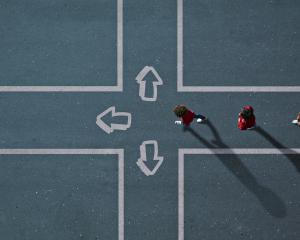Sleep. At a time when we arguably need it more than we ever will in the future, teenagers are getting it the least.
When we're at an age where bedtimes are no longer as strictly enforced, but waking up most probably is, the struggle between sleep and being productive remains a pillow fight, with detrimental outcomes.
One could put forward that it isn't realistic to expect the recommended eight to nine hours of sleep per night from the majority of the teenage population, especially from those whose workload has doubtless become weightier as they climb the high school rungs.
Other factors come into play as we get more senior - having part-time jobs, extracurricular activities or an intense dedication to the internet.
Add in the hopefully thriving social life, and teenagers have a plethora of reasons to pointedly ignore the alarm clock.
This long-fought battle doesn't go unnoticed by schools, either.
Some schools require pupils to sign a contract stating that they'll get the recommended eight hours of sleep every night, but with no enforcement, there's no real motivation to uphold that commandment.
Perhaps if iPods lay in the balance, we'd feel more conscientious.
But the school's concerns are legitimate.
In a study looking at sleep patterns in New Zealand secondary school pupils, 21% reported not getting enough sleep, the most likely culprits being older female pupils of Maori and New Zealand European ethnicity.
That 21% is, today, most likely understated, as the results were taken from a survey conducted in 2001.
Since 2001, the internet has boomed far beyond anticipation, and smartphones and laptops make procrastination far more accessible for teenagers.
Factor in, too, that the pupils sitting the survey might not all have been entirely truthful, and we're looking at far more than 21% in the modern age.
Aside from reaper-esque eyes, there are other health concerns that have come to light as a result of limited sleep.
Short sleep duration is linked with increased risk of diabetes, heart problems, depression and substance abuse.
It also decreases the ability to pay attention, remember new information, and worst of all, makes us more susceptible to pimples and weight gain.
With these revelations in mind, imagine what a month's dedicated sleep could do. In addition to potentially raising grades, it could clear skin and help lose a few kilograms.
What teenager could ask for more?
So, fellow pupils, schedule some sleep into your daily activities - for a laptop battery runs out of charge quicker at 50% than it would fully charged.
• By Josephine Devereux Year 13, Logan Park High School












